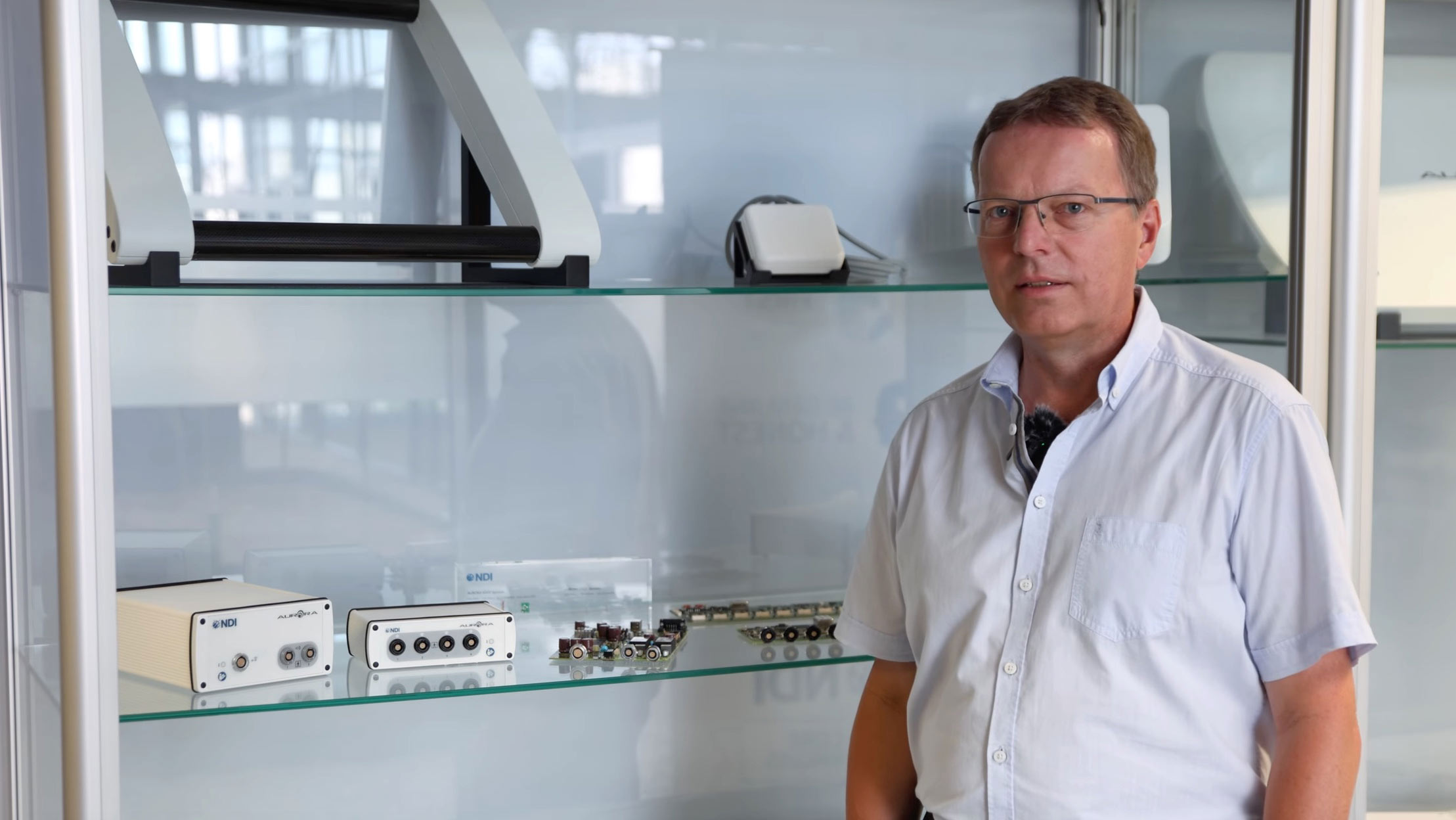
Electromagnetic Measurement Systems
Electromagnetics is a key technology used in the exceptional NDI 3D measurement systems Aurora and 3D Guidance. All the Aurora value-creation stages take place at our Radolfzell location. 3D Guidance is developed and produced globally in close cooperation between all our locations.
Our Aurora system
A look behind the scenes of medical navigation
Our electromagnetic position measurement systems are primarily sold to medtech companies that integrate them into their systems. Integrated into the customer’s system, our technology supports the surgeon in navigating the medical instruments to the correct position. Our electromagnetic measurement system calculates the position of a sensor integrated into the instrument. The position information is then forwarded to our customer’s system, where it is processed along with other data. Finally, our customer’s system displays the instrument’s position to the surgeon in real time on a medical image. Within the last few years, NDI has become the global market leader for position measurement systems used by medtech companies.
Principle of Operation
- A sensor is integrated in the tip of a flexible or rigid object (e.g. needle, catheter, probe, guidewire)
- This object must be within the system’s measurement range so that the system can accurately detect its 3D position and orientation.
- The system transmits the position and orientation data to the application software, which processes it according to the application requirement, e.g. for visualization
Benefits
- No radiation exposure because magnetic filed technology poses no health risks
- Real-time 3D measurement (position and orientation)
- Extremely small sensors (e.g. 0.45 mm x 6.4 mm)
- No visual contact to the sensor in the object necessary
- The human body does not influence the measurement result
Do you have technical questions?
Our customers’ fields of application for electromagnetic measurement systems

Interventional Imaging
Finally the fusion of ultrasound images with pre-operative CT or MRT images is possible. The real-time position determination of the ultrasound probe opens up new options in ultrasound imaging.
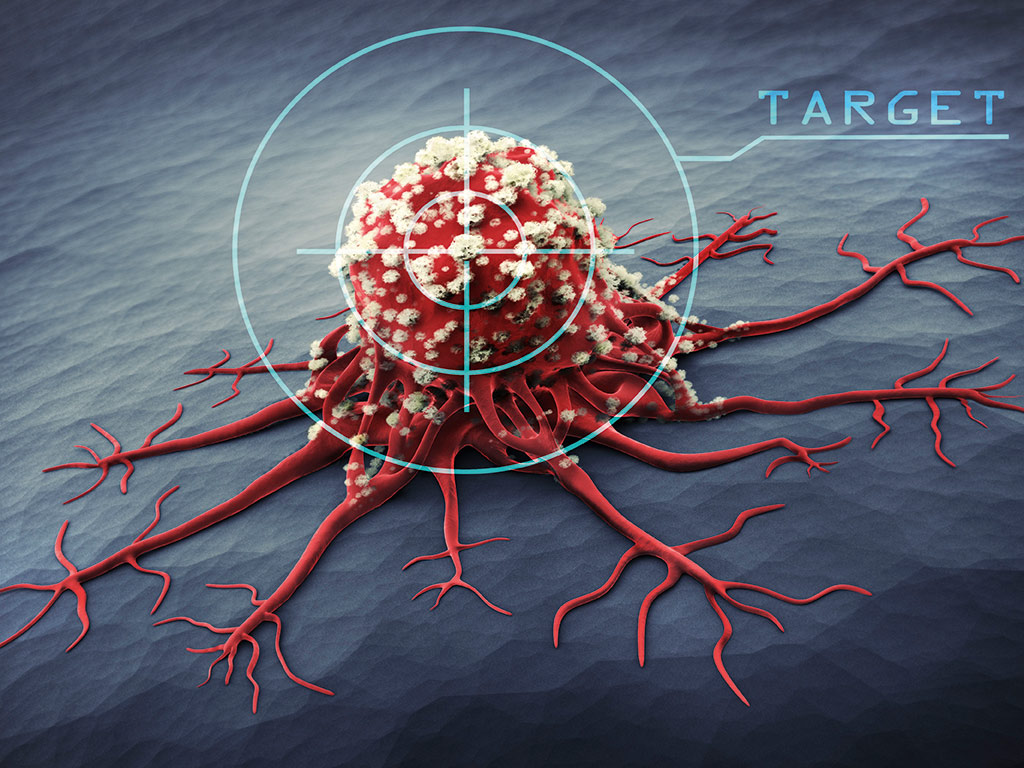
Interventional Oncology
3D positioning of medical tools such as biopsy needles or ablation catheters based on the ultrasound image, determining the ideal route to the organ.

Pulmonology
Reaching the organ directly and quickly: by position determination of the tip of a bronchoscope or a pulmonary catheter in the lung with reference to a CT image.

ENT Surgery
Preventing perforation of the skull base and injury of the optic nerve: by position determination of ENT tools during endoscopic sinus operations.
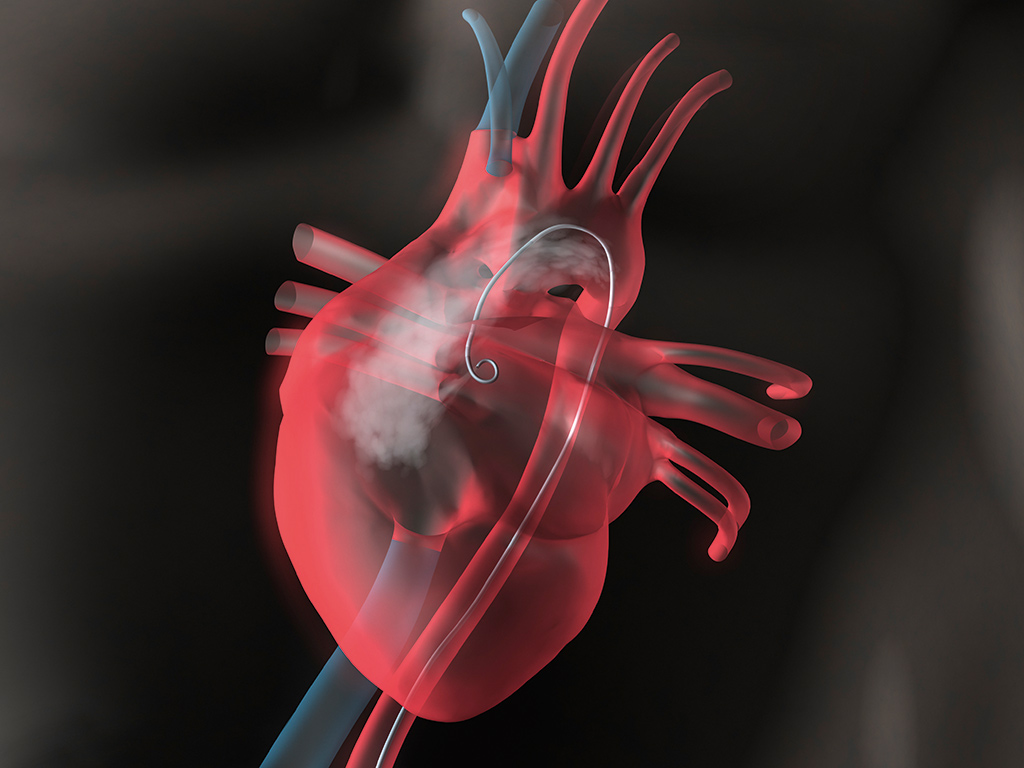
Electrophysiology / Cardiology
Effectively preventing cardiac fibrillation: thanks to position determination of electromagnetic ablation catheters.
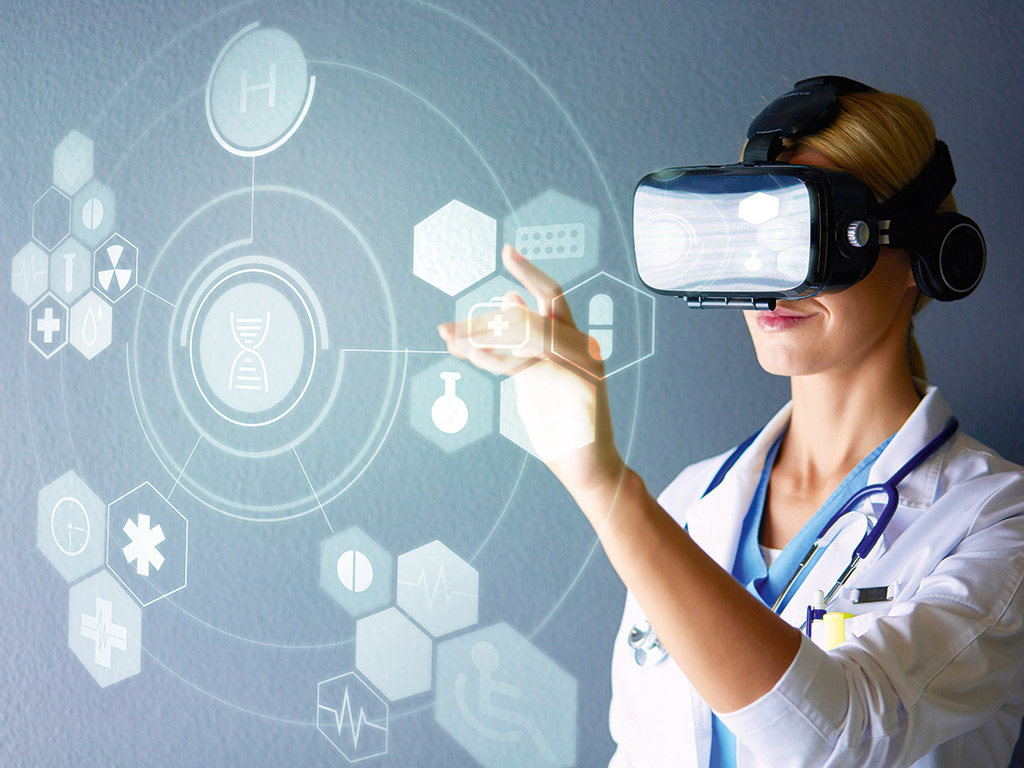
Other fields of application
Training future doctors: by position determination of medical instruments during simulated operations.
Aurora and 3D Guidance compared
| Compare products | Aurora | 3D Guidance |
|---|---|---|
| Product image | 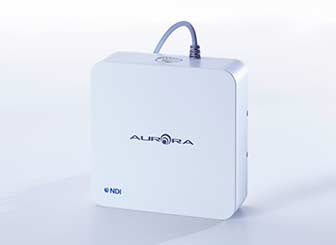 | 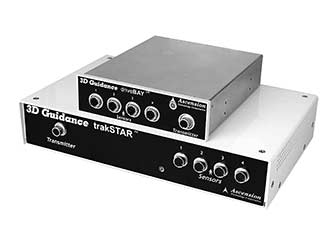 |
| Max. measurement size | up to 0.5 m³ (e.g. 1.0 x 1.0 x 0.5 m) | up to 0.15 m³ (e.g. 0.46 x 0.56 x 0.6 m) |
| 3D volumetric accuracy | up to 0.48 mm RMS | up to 1.4 mm RMS |
| Angular accuracy | up to 0.2° RMS | up to 0.5° RMS |
| Max. number of sensors | up to 32 simultaneously | up to 4 simultaneously |
| Max. measurement rate | 66 Hz | 20 - 255 Hz |
| Product range | Extremely modular, flexible system for good application integration | Standardized system with two different measurement ranges |
| Adaptability | possible to a high degree | possible to a limited extent |
| Sensors | diameters from 0.3 mm, low-cost for single use | diameters from 1.3 mm, ideal for multiple use |
To find out more, please go to the website of our parent company
Northern Digital Inc. →


